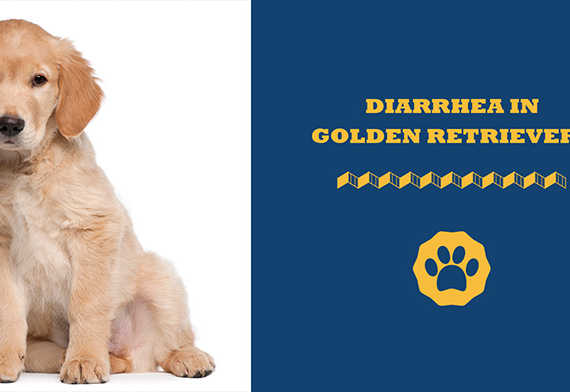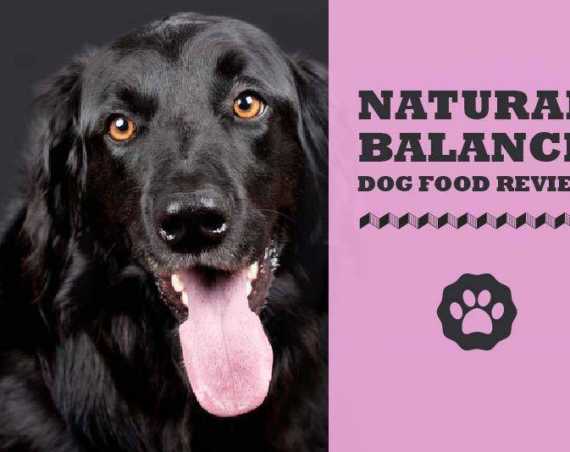Updated: March 2nd, 2023
This article contains affiliate links. Read the full disclosure here.

© Depositphotos.com / grase
You are your Golden retrievers sole guardian and provider. They rely on you for everything and their health and well-being is well and truly in your hands.
In order for your Golden to live as long and as healthy and fit a life as possible, you need to first educate yourself on how to care for them properly and build this knowledge into actions and routines.
Because your dog can’t speak to tell you how they’re feeling or what they need, it’s completely your responsibility to look after their health.
A balanced and nutritious diet, regular exercise, grooming and regular veterinary health checks are all essential parts of maintaining good health and quality of life. All of these are under your control.
And it’s important to remember that prevention is better than cure. By taking steps to do the best for your Goldens health and monitoring their well-being regularly, you can prevent illnesses happening, avoiding pain and discomfort for your Golden and vets bills and heartache for you.
At first, being a caring and responsible owner can seem a daunting and herculean task, but breaking it down into little manageable routines really does make it easy.
Health Care Routines For Your Golden Retriever
You should keep a diary and set up daily, weekly, quarterly and yearly routines to make sure every need is met and your Golden is well looked after. Example routines would be:
- Daily: Provision of nutritious food and clean water, regular and sufficient exercise, general health check via bodily inspections.
- Weekly: Inspection of ears, eyes and oral health and hygiene. Comprehensive grooming and nail care.
- Quarterly: Bath your Golden. In the past, any more often than this was bad for their coat quality and skin. but modern shampoos allow you to bathe them every 1 to 2 weeks if you wish. But if you don’t, do it at least quarterly. Scheduled visits to a veterinarian and canine dentist, perhaps alternating every 3 months so two visits to each per year.
- Yearly: Vaccination top-ups.
But there’s more to dog care than just this. Following is a brief discussion of areas you need to pay attention to in order to care for your Golden well.
Make Your Home and Garden Safe For Your Golden Retriever
Golden Retrievers are a highly intelligent breed and with this comes an unstoppable urge to test, learn and explore. Particularly during their puppy years they can get themselves into all sorts of trouble around your home and garden so you have to undertake a certain amount of puppy-proofing your home:
- Fence off swimming pools or ponds in your yard as they will get in there but being so small they may not be able to swim well and could find it impossible to get out unaided.
- Research the plants and flowers you have in your home and garden as there are in excess of one hundred plants known to be toxic to dogs and Goldens love a good chew!
- Remove or make safe any sharp items in your home that your Golden may play with, rub against or walk over in their playing.
- Hide away any electrical cables because a dogs sharp teeth and electricity are a particularly dangerous combination.
- Install ‘child-proof’ latches on all your kitchen cupboards and drawers. Goldens can learn to open simple storage units and household chemicals therein are extremely dangerous to your dog.
- Don’t leave rubbish, or in fact pretty much anything lying around. Puppies explore with their mouths and whatever they find they will play with and chew and it’s very easy for a dog to choke on small items, particularly trash that’s easily swallowed with the edible scraps they were really seeking.
There’s many more things I could mention for dog-proofing your home but I shall write a follow-up article detailing this in future.
For now, just pretend you are an inquisitive dog, tour your home and garden and imagine just how they could get themselves into trouble in any of the areas they have access to. Then take steps to make those areas safe.
Diet, Nutrition and Water Intake
Dogs in the wild would hunt and scavenge, eating a wide variety of different foods, taking care of their own diet and ensuring they get all the nutrients they need. Modern dogs no longer hunt and scavenge and instead rely on their owners to provide them everything they need.
Very cheap dog foods and human table scraps really don’t cut it when it comes to providing for your dog. You need to research, find and provide a good scientifically formulated diet to match their very particular nutritional requirements.
You should note that a puppy has different nutritional requirements to an active adult dog, that is again different to a very senior dog who may have somewhat slowed down. There are dog foods balanced to meet a dogs different needs for each stage of their lives and activity levels.
One thing you really need to watch out for with Golden Retrievers is over-feeding. Obesity in Golden Retrievers is a common problem, mostly because it’s hard to say no to a well-practiced begging routine from a very skilled and beautiful looking beggar!
If you feed your Golden the correct amount twice per day, perhaps a few treats when training, and then feed them table scraps and leftovers, it’s very easy to provide too much food and of the wrong types. And a Golden will never say no, they just love to eat!
So please be mindful of their food intake and monitor their weight. If they start to look a little heavy, cut back on the food you’re giving them. No dog should be overweight. It can lead to joint problems, which leads to mobility problems, as well as diseases of their internal organs which can really shorten their lives.
As well as good food, your Golden needs access to a good, clean and fresh supply of water every day.
Dogs will drink between 1/2 and 1 ounce of water per pound of body weight, depending on the weather and their activity levels. Dehydration is a real problem, as is over-hydrating in some dogs. Monitor how much they drink and be sure they aren’t under or over drinking. And any drastic changes in their intake usually signifies an underlying health problem and you should seek the advice of your vet.
For a more detailed discussion on the importance of water and monitoring your Goldens intake, please read How Much Water Does A Golden Retriever Need?
Exercise
Golden Retrievers are a sporting breed, bred for working and hence considered a high energy breed. To keep them fit and healthy and to occupy their minds you will need to provide them with lots of opportunity for structured exercise.
Notice I said structured exercise!
This means you cannot simply let them out into your yard and hope they take care of exercise themselves. Because they won’t. They will walk around a bit and mostly just spend their time begging to be let back in with you. You have to plan structured exercise such as running, playing fetch or swimming.
You have to take them out for a minimum of 45 minutes of exercise per day on top of their normal walks, and preferably with a good 2 hour bout of longer exercise at least once per week. If you don’t provide this the energy they store instead of burning off will send them crazy, usually resulting in destructive chewing behaviors and seeming wild and out of control.
If your golden is just a puppy though, they don’t need nearly as much exercise as this! There is a ‘5 minute rule’ can be applied to puppy’s. The five minute rule is that a puppy needs no more than 5 minutes structured exercise per day for every month they have been alive.
So a 4 month old puppy needs just 20 minutes, a 5 month old puppy 25 minutes etc. This doesn’t include normal play which they can do on top, but any more than this 5 minute rule is often too much exercise which can lead to skeletal development problems and issues with their joints. So take it easy with a puppy.
To learn more, please read How Much Exercise Does A Golden Retriever Need?
Training
Just how important training is for your Goldens quality of life cannot be overstated.
A dog that listens to and responds to just a few well-trained commands can be kept infinitely safer than an untrained dog. And their quality of life is so much better when trained as they’re given more freedoms and taken more places as they can be controlled and trusted not to cause trouble.
I’ve written a detailed article on why training your Golden is so important, so rather than repeating myself please see this article: Why Training Your Golden Retriever Is So Important
Bedding and a Place To Call Their Own
Golden Retrievers just about sneak into the bracket of being described as a ‘large dog breed’ and as such they should never be left to lay upon a bare hard floor.
If they aren’t given a soft comfortable surface to lay upon they can form calluses on their elbows from such weight resting on a small surface area. So you should provide your Golden with a decent firm yet soft bed and a nice comfortable lining for their crate if you use one. And I do recommend you use a crate as explained in my article The Benefits of Crate Training.
If you have a yard and your Golden will be expected to spend any length of time outside you should provide a form of shelter so they can keep off the cold wet floor in winter and get out of the sun in summer. There are many options for suitable kennels and many of them are reasonably priced.
Grooming
When most people hear the word ‘grooming’ they think of just coat care and brushing. But it’s so much more than that and is actually caring for every single body part of your Golden Retriever.
The Basics of Coat Care, Brushing and Bathing
Golden Retrievers are a long-haired breed and to keep it in the best possible condition it’s essential to brush their coats on a regular basis with once per week being the norm.
If you fail to keep up a regular schedule of brushing, their coats very quickly become knotted and then matted and these are all but impossible to remove without the help of a pair of scissors.
Regular brushing also helps to keep your Goldens coat clean and removes dead hair.
When it comes to bathing, Golden Retrievers have a double coat and natural oils that help waterproof them so bathing too often is actually bad for their coats…at least it always used to be. With modern dog shampoos you can bathe them as much as once per week and not damage their coats, so it’s really up to you.
Personally I’ve only ever bathed mine when really dirty, maybe 4 or 5 times per year. But that’s more an old school habit that I’m used to rather than a necessity.
Just be sure if you do wish to bathe them often that you research the shampoo used and pick one suited to regular bathing for Goldens. Human shampoo will never do as it will strip their oils and is too acidic for their skin and will irritate them. And cheap dog shampoos will strip the oils too. You kinda get what you pay for.
After bathing a Golden, it’s essential that you rinse them completely. Once you’re sure the water is running clear and the shampoo is gone, rinse them some more. To keep their coat healthy and prevent irritation you need to remove all the soap.
Note: Click here for a selection of the best dog brushes suitable for your golden
Nail Care
Depending on how often your golden walks on hard abrasive surfaces, they will probably need their nails trimmed every 10 or 12 weeks. But if your golden is constantly walking pavements and roads, they may never need a trim due to concrete and tarmacs abrasive, nail-file like effect.
Anyway, you should regularly check your dogs paws. First of all to make sure there are no little cuts that have turned into infection, but then to make sure they’re nails haven’t overgrown. This can be very uncomfortable for your dog and if it gets out of control even painful.
You can quite easily trim your dogs nails at home, or you can take them to the vet where they will do the procedure for you. If you do wish to do it at home, I recommend taking your dog to the vet first and asking for advice on how to do it, being shown and learning from the pros rather than risking it alone from a book. Better safe than sorry!
Tending To Your Goldens Ears
It’s important for you to regularly check inside your Goldens ears because being a little floppy, they close over their ear-holes and trap moisture inside which leads to a build up of bacteria and ultimately infections.
Look inside to make sure they are a healthy looking color, not bright red and inflamed.
Also check for lots of small little grainy looking brown dots. These are the droppings of ear mites and a sign of a parasitic infection which should be treated ASAP.
Dental Care
Dental hygiene is an often overlooked area of dog care by many people but is very important.
Much like us, dogs can suffer with tooth decay, cracked teeth, gum disease and a build up of plaque and tartar. Not only does this detract from the overall good looks of your dog, it can be quiet uncomfortable, sometimes painful and can lead to more severe problems if left untreated.
So you should regularly check their teeth and gums yourself, make use of available chews that help to clean their teeth and take your dog to a canine dentist every 6 to 12 months.
Try to treat your dogs teeth as good as you would treat your own. OK, maybe not that excessive, you can leave out the flossing 😉
You can read our useful guides on finding the best toothbrush for your dog, and our top recommended dog foods for managing dental health.
Parasitic problems
Fleas, ticks and other parasites can be a real problem for dogs, leading to many problems ranging from mild skin irritation, to extreme sores and infections, and in the most extreme cases dramatic weight loss, tape worms and Lyme disease.
So you should regularly check for parasites in your Golden which is very easy to do if you are sticking to a regular schedule of brushing their coats. Simply spend an extra minute to inspect closer to their skin looking for ticks, fleas or small dots (droppings) in their fur which would indicate the presence of parasites.
Treatment for fleas and ticks can be administered at home as there are many treatments for this available over the counter. It’s a good idea to treat your dog periodically anyway, whether you find parasites or not, just to be on the safe side.
Scheduling Visits To The Vet
You should visit your vet regularly to have a full health check for your Golden. Try to make it every 6 months, but once per year as a minimum. Don’t wait for them to be ill to visit, go on a regular schedule anyway. This will allow your vet to become familiar with your dog which makes spotting changes easier for them. And it gives them a chance to spot problems early that you without an untrained eye may not pick up on.
As always, prevention is better than cure and if there is ever a problem then catching it as early as possible is vital for more effective treatment and minimal pain and discomfort for your pet. Regular visits to the vet allow this early discovery.
You will also need to see your vet to have your puppy vaccinated. There are many diseases, some fatal, that can be prevented easily with a course of vaccinations.
Distemper, parvovirus and hepatitis as well as the infamous rabies can all be kept at bay with vaccines.
A puppy will require shots starting at 6 weeks with a course of various shots taking them up to 18 weeks or so. The rabies shot is administered at about 6 months of age and after this your Golden will require just a yearly top up to maintain protection.
Highly Recommended Training Course
For a detailed program to follow in the form of a video library, including a step-by-step roadmap for raising a puppy from 8 weeks old all the way to a confident, well-trained and happy adult dog, you could do a lot worse than checking out The Online Dog Trainer.
This program contains over 250 follow along videos of an NZ SPCA endorsed professional dog trainer, covering all aspects of dog training, solving behavior problems in real life scenarios, explaining the theory, giving practical advice and more.
Dan’s methods are positive, force free and effective. You can see him getting real results in real-life consultations with his clients, so if you ever have a behavior problem you need to solve, you can follow along for almost guaranteed results.
Of course, we are developing a fantastic training resource here at TotallyGoldens.com for free, but there are times when instructional video just hands down beats the written word, and that’s why we’re happy to promote the course.
Click here to learn more at TheOnlineDogTrainer.com.
Caring For Your Golden Retriever Final Thoughts
Regular grooming will keep your Golden retriever not only looking at their absolute best, but also with your help and intervention it keeps them healthy and disease free too.
Once you set up a routine, it really isn’t much work or hard to do. And it’s quality time you spend together with your dog which strengthens the bond between you and is good for your relationship.
This article was merely an introduction to what it takes to care for your Golden but I hope it’s given you a good idea of what’s required and how important your role as your Goldens carer truly is.




4 Comments
Jesse P. Smith
Nice article covering more than just the basics. Thanks for sharing!
posiy
love the website
posiy
Wendy
Thank you, Posiy, always good to hear 🙂
Marcus
Thank you so much for mentioning how you need to take the time to take preventive measures when taking care of your golden retriever dog. I can understand that taking the time to do this can help you care for your pets as best as you can. It is important to remember that taking the time to do some research can help you find the best ways to care for these breeds of dog and enjoy their company.